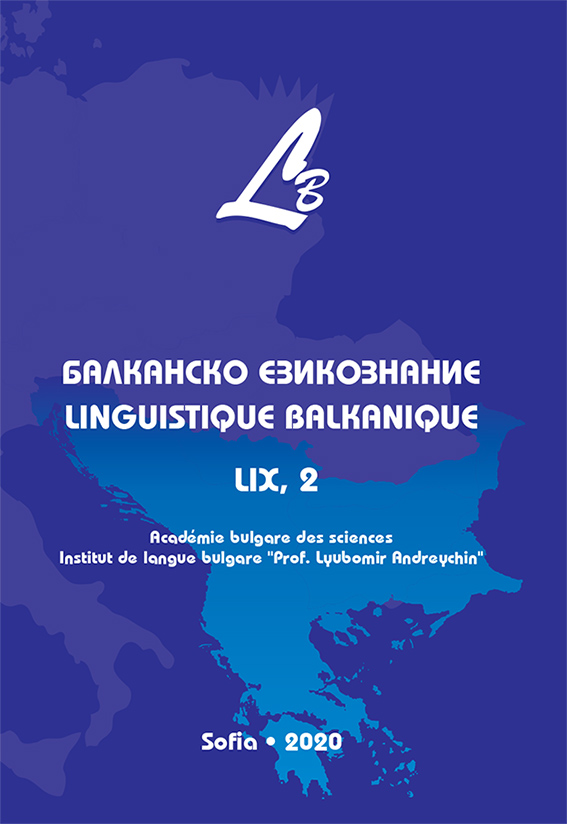LEXIKALISCHE EINFLÜSSE AUF DIE MUNDARTEN VON CHLOI (KOMOTINI/GRIECHENLAND) UND GORNI JURUCI (KRUMOVGRAD/BULGARIEN): KONTRASTIVE BETRACHTUNGEN ZU ISOTOPIEN IM BEREICH DER GESUNDHEITSTERMINOLOGIE
LEXICAL INFLUENCES IN THE DIALECTS OF HLOI (KOMOTINI, GREECE) AND GORNI YURUTSI (KRUMOVGRAD, BULGARIA): CONTRASTIVE STUDIES OF HEALTH TERMINOLOGY
Author(s): Martin Henzelmann, Georgi MitrinovSubject(s): Language studies, Language and Literature Studies, Theoretical Linguistics, Lexis, Semantics, Comparative Linguistics, Descriptive linguistics, South Slavic Languages
Published by: Институт за български език „Проф. Любомир Андрейчин“, Българска академия на науките
Keywords: Bulgarian Rhodopean Dialects; Language Interference; Health Terminology; Terminological Vocabulary; History of the Bulgarian Language
Summary/Abstract: In this paper, we will focus on some lexical features characteristic of the dialects spoken in the villages of Hloi (Greek Χλόη = Bulgarian Hebilevo/Хебилево) in the Greek region of Komotini (Κομοτηνή = Gyumyurdzhina/Гюмюрджина) and of the related dialects in the nearby village of Gorni Yurutsi (Горни Юруци) in the Bulgarian region of Krumovgrad. In particular, we will pay attention to isotopically significant terminology in the fields of health, healthcare, illness, and related phenomena. The local language variety spoken in both the Greek and the Bulgarian villages is clearly identified as a Bulgarian-based Rhodopean dialect, but the two villages deal with radically different conditions of language contact. In the first section, we will give a short overview of the problems of language contact in general. Then, in section two, we will focus on health terminology. We compare language materials collected on the two sides of the border, and discuss the impact of language contact in this area. Our conclusion is that contact-induced change is observed on both sides of the Bulgarian-Greek border, but it takes very different forms in Bulgaria and Greece due to quite different and very complex language influences.
Journal: Балканско езикознание / Linguistique balkanique
- Issue Year: 59/2020
- Issue No: 2
- Page Range: 280-299
- Page Count: 20
- Language: German
- Content File-PDF

